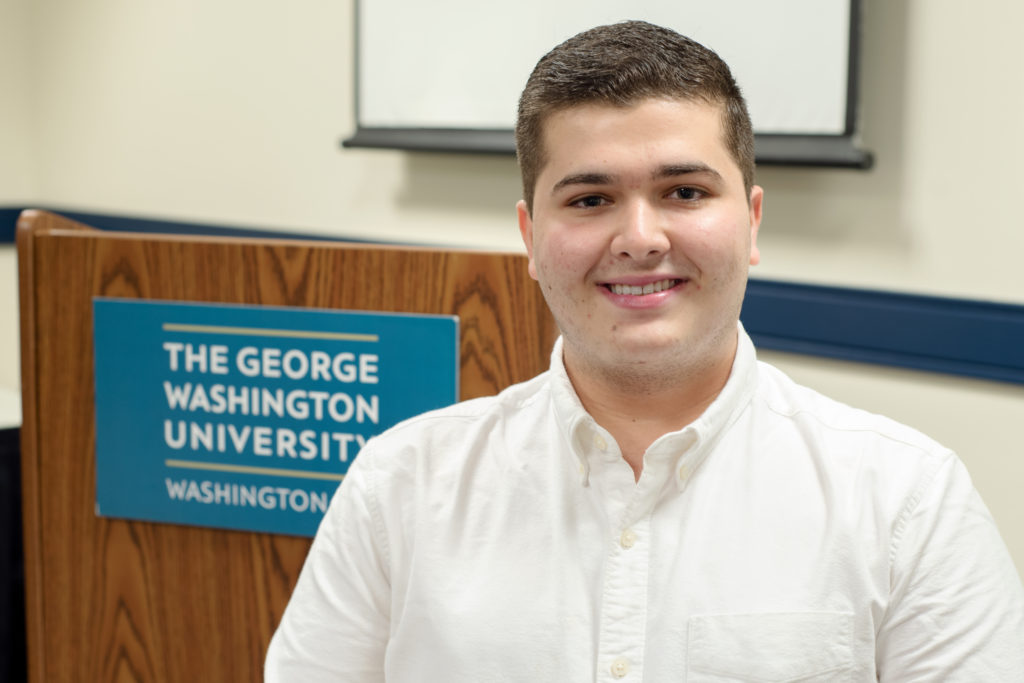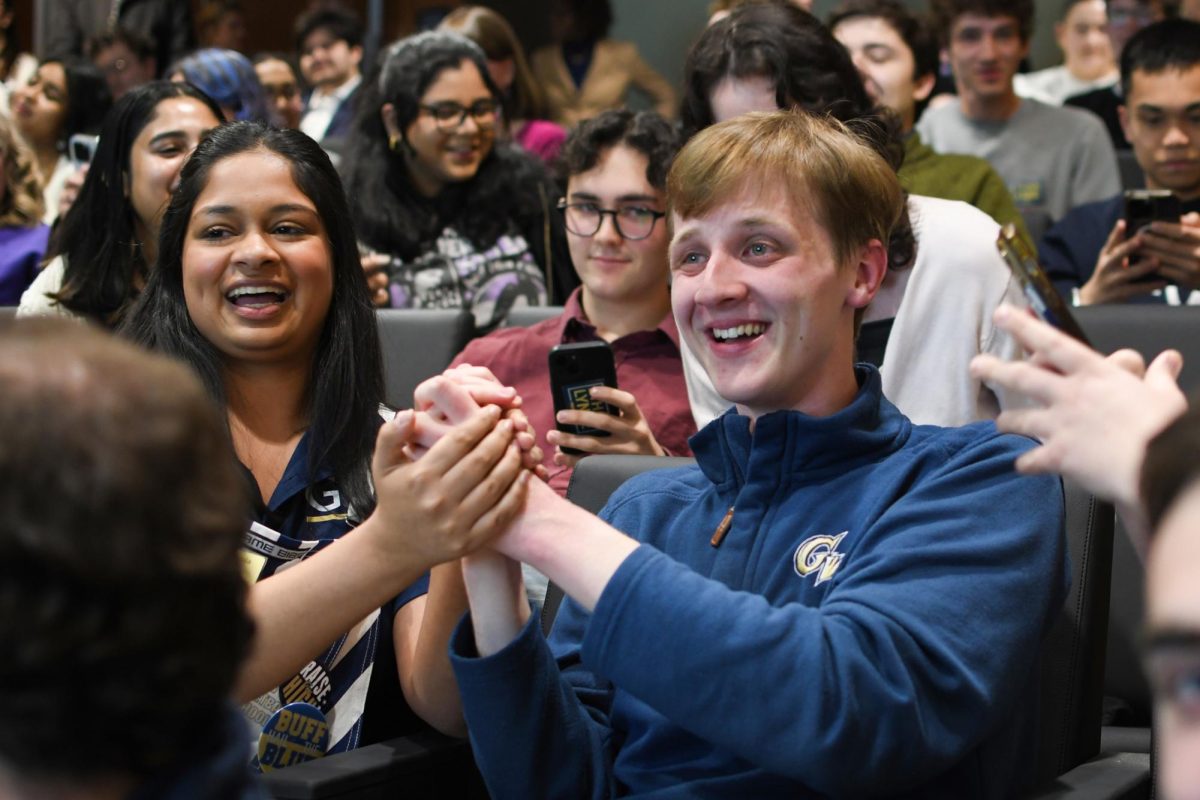A Student Association senator launched his bid for SA vice president Thursday, aiming to restore the relationship between the SA and the student body.
SA Sen. Alfredo Granados, CCAS-U, said if elected, he plans to create a student body engagement advisory group composed of student organization leaders to correct a lack of “connection” between the student body and the SA. He said the advisory group would help identify students’ issues at GW, like a lack of safety and accessibility, and present them to the senate to push SA members to take action in response to the issues.
Granados, a sophomore, said he will work with the senate as vice president to ensure the body steers clear of “petty drama.” He said meetings will focus more on the student body’s needs, like funding for student organizations and better engagement with the SA.
“I have seen how devastating the lack of internal collaboration and communication on the SA can be, not only for our internal effectiveness, but also for community engagement and the way our peers see the Student Association,” Granados said.
Granados is the second student to announce their candidacy for SA vice president after SA Sen. Yan Xu, ESIA-U, launched his campaign Monday with a promise to push officials for more SA and student organization funding.
Granados said many student organizations are “unaccounted for” during the SA budget process and that cultural student organizations and smaller organizations should receive more funding from the SA. He said he will push the senate’s finance committee to ensure “fair distribution” of SA funding across all student organizations, including cultural student organizations that can advance diversity initiatives on campus.
He said promoting diversity and inclusion through funding instead of “handpicking” student organizations to fund will engage more student leaders with the SA.
“Our culture orgs for example, as we promote diversity, from the SA, need to receive assurance that the finance committee process and the SA is with them to promote diversity on campus and promote inclusivity and promote their engagement,” Granados said.
He said he would meet with officials to discuss widening students’ access to Title IX reporting and expand GW Police Department services in an “unbiased” way to support students. He said students struggle to report sexual assault cases to the Title IX Office and regularly face SafeRide delays, which create “major” safety issues at GW.
Granados said he will work with officials to find alternative gyms off campus to replace the Lerner Health and Wellness Center while they shut down the space to make HVAC repairs expected to start this summer. Once Lerner reopens, he said he will push the University to expand Lerner’s hours to open earlier and close later to accommodate ROTC students, who have told him that the Lerner hours do not fit with their schedules.
“I will put my efforts to voice the concerns of extending hours for ROTC students at GW and be more open of understanding the needs and the demands of the ROTC community at GW,” Granados said.
He said he has served on the student life committee during the SA’s current term and spearheaded the International Students Ambassador Cohort. The group connects prospective international students with students at GW to help them with the application process, teach them about the University and assist in their visa application process.
Granados said he will also urge officials to hold a financial literacy training session during New Student Orientation to help students manage their finances, like budgeting grocery shopping and meals. He said as GW transitions to an unlimited dining plan – which will offer access to three all-you-can-eat dining halls – students will need to budget their dining dollars to buy groceries and meals from vendors on campus.
“It will move student orientation to something that could be valuable when we see how important it is for students to manage their finances at GW,” Granados said.
Granados said his campaign will focus on messaging through social media and in-person campaigning.
“The main challenge here is how candidates can lay out the truth to the community,” Granados said. “I think that the best way to deal with this situation is to encourage the GW community to look at the records of the work in the accounts of students and the accounts of our senators”








